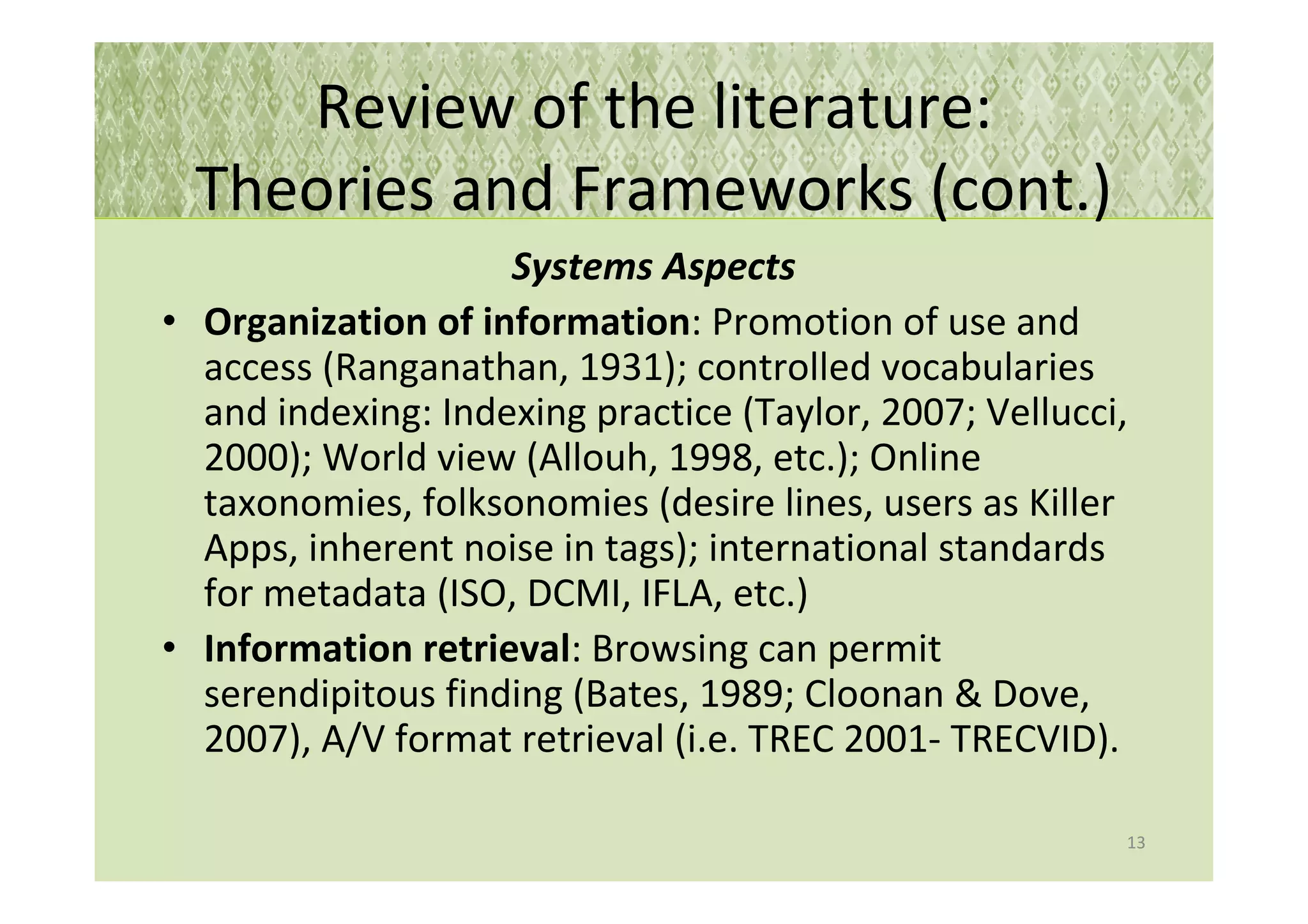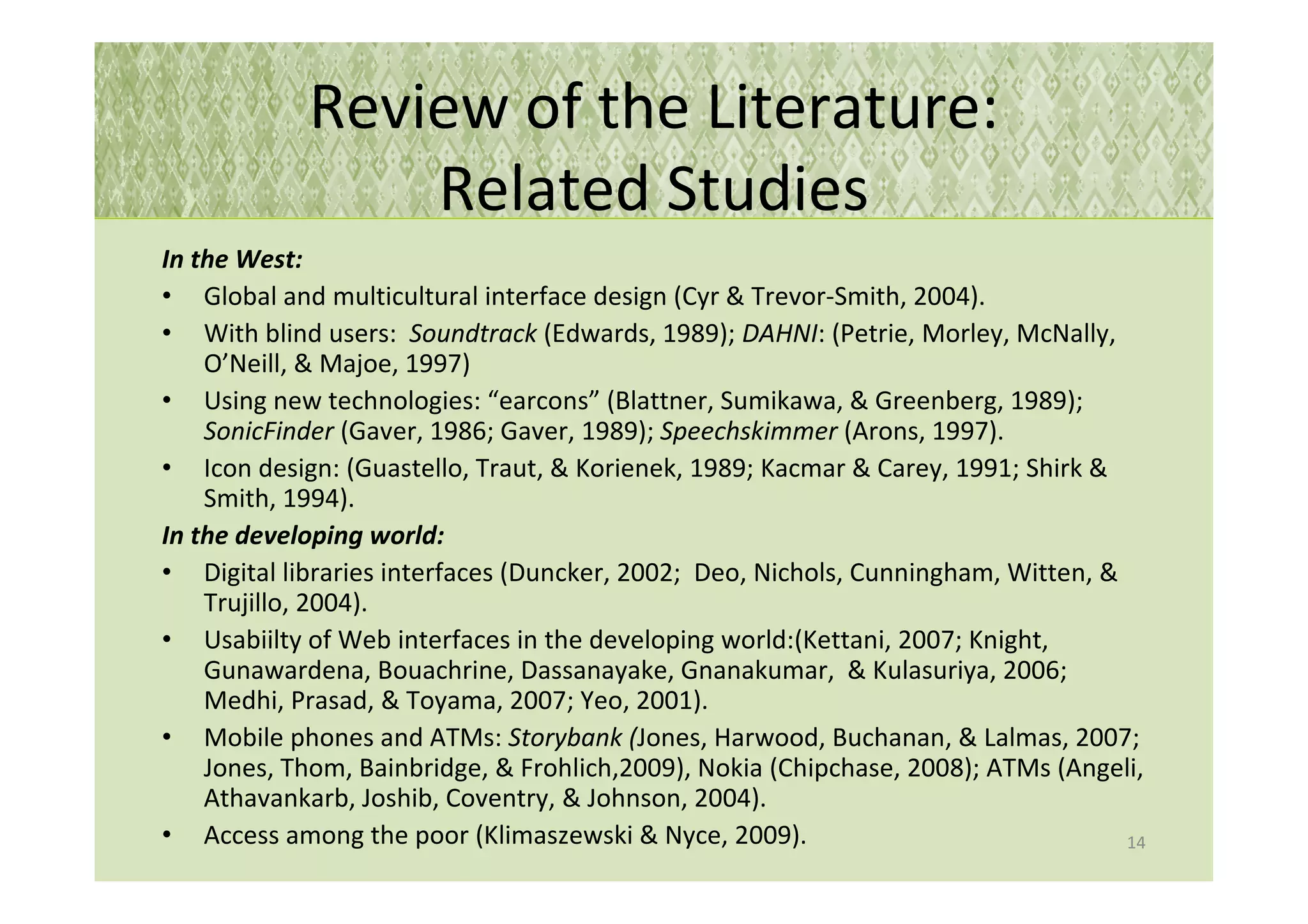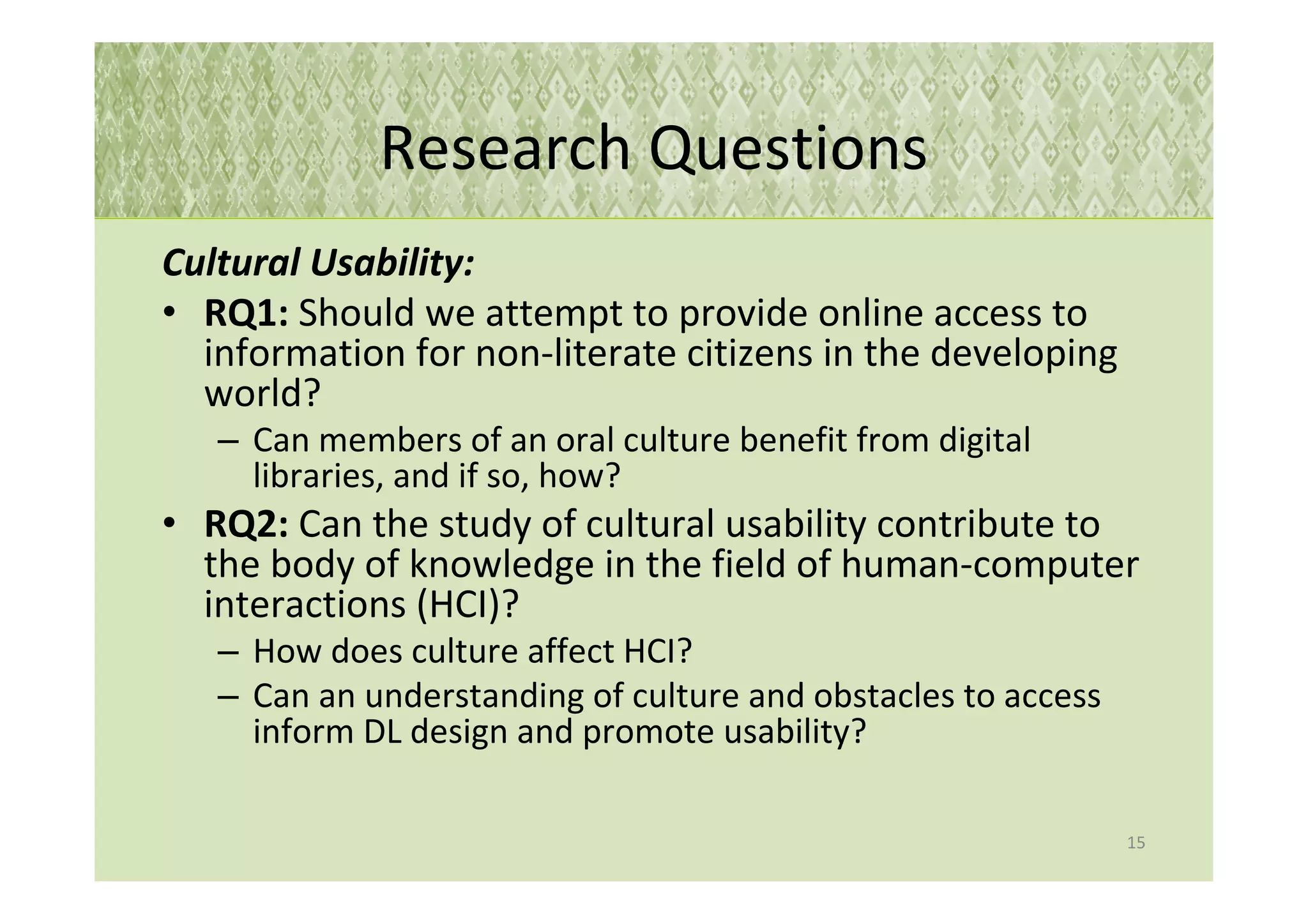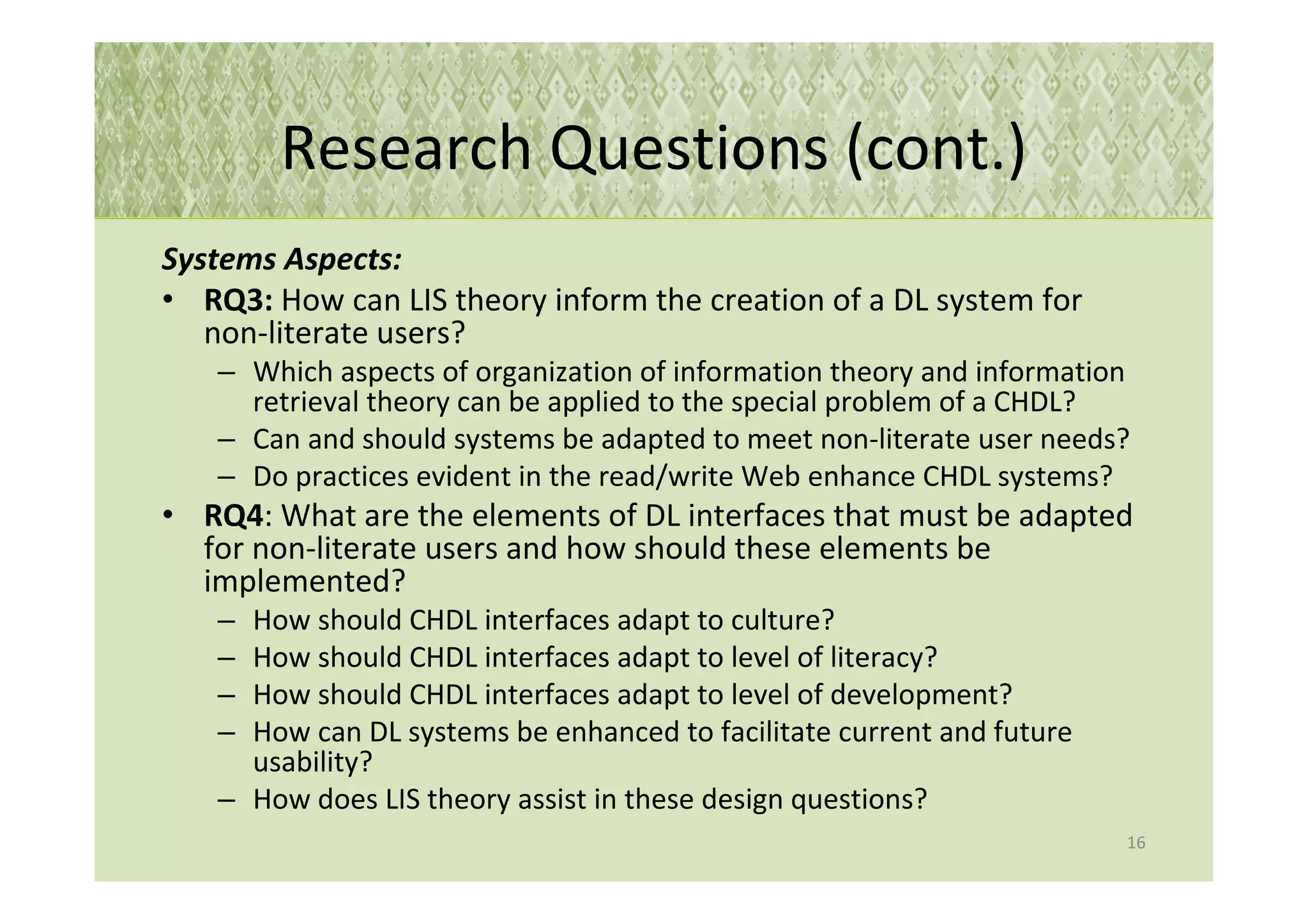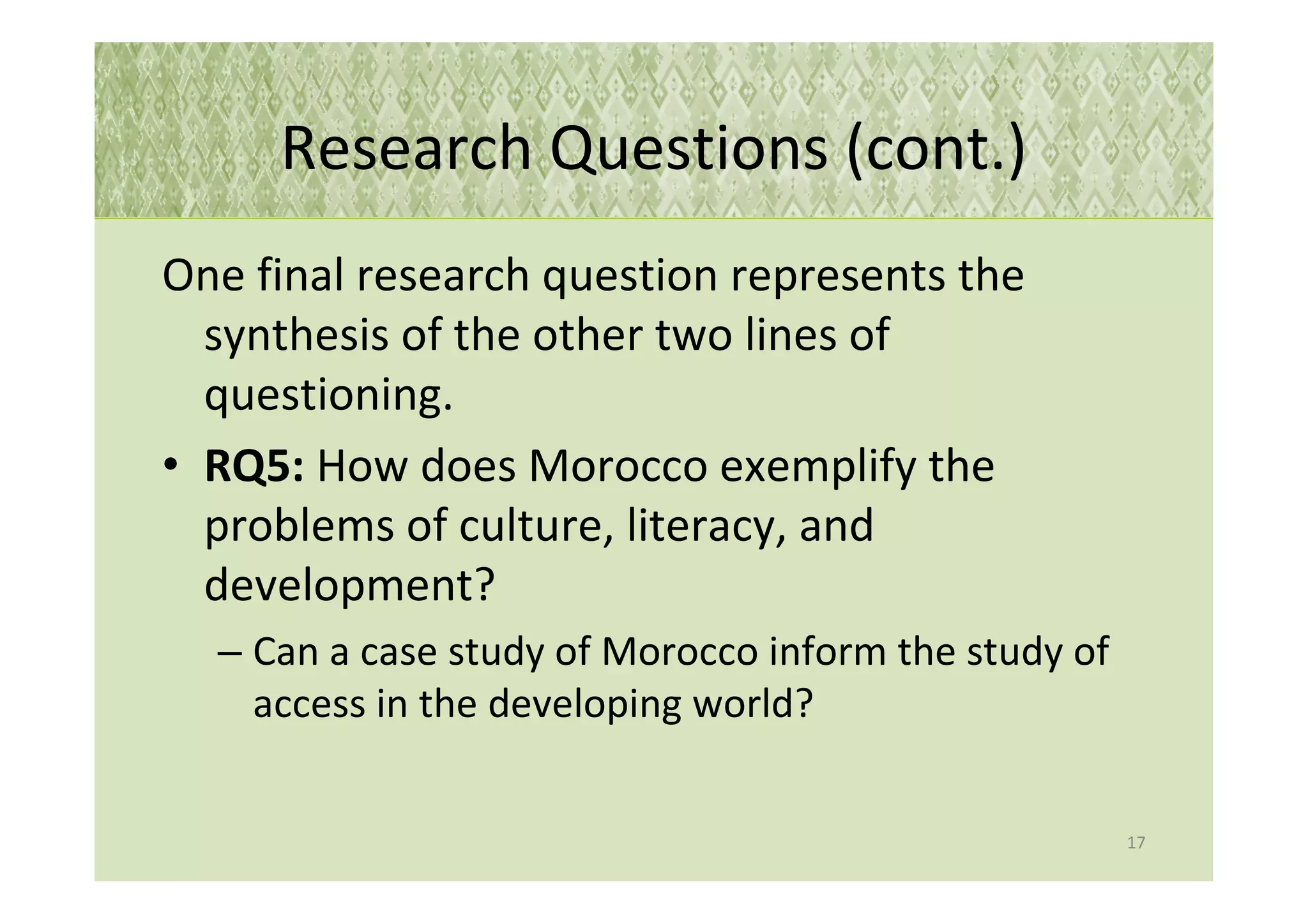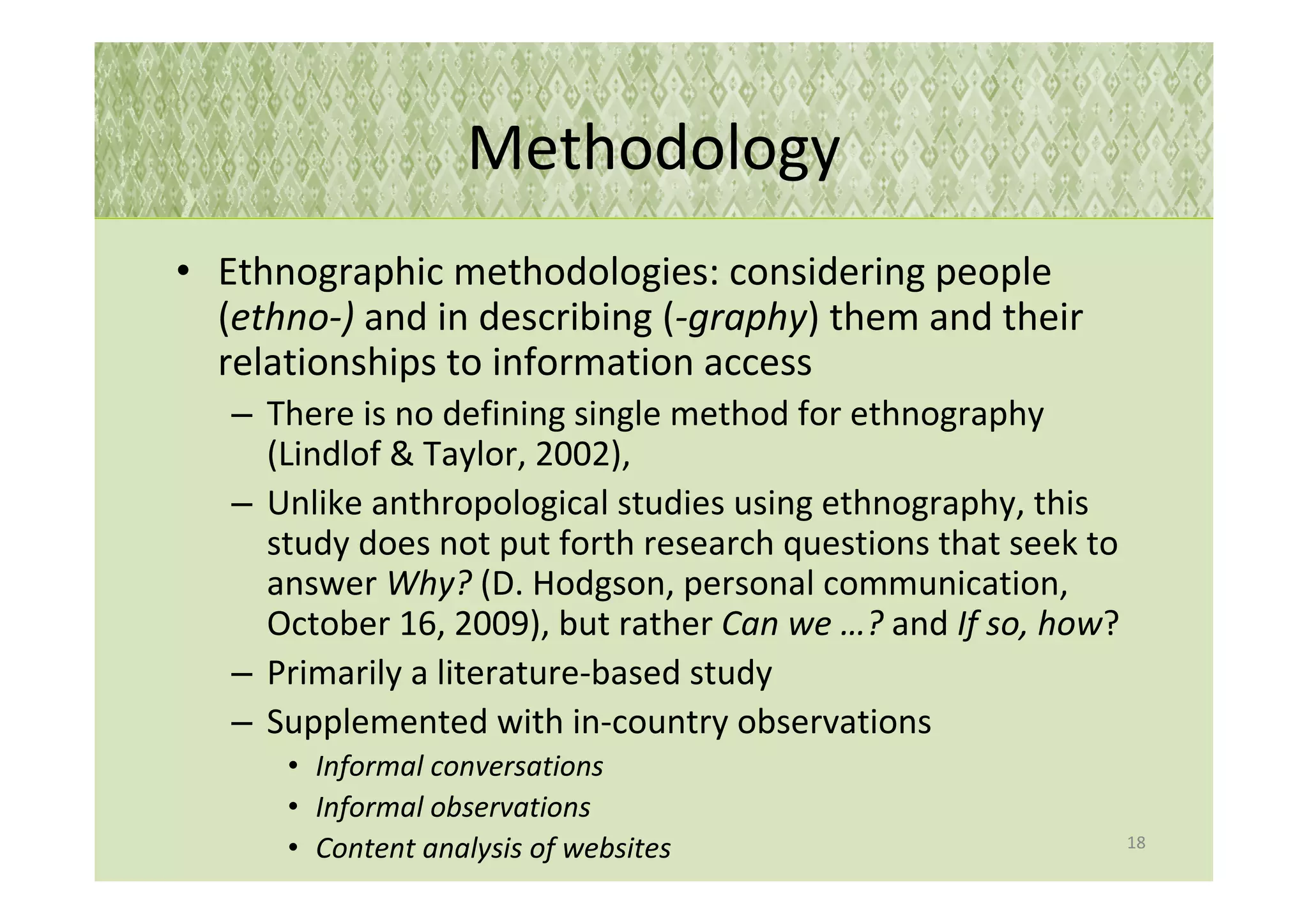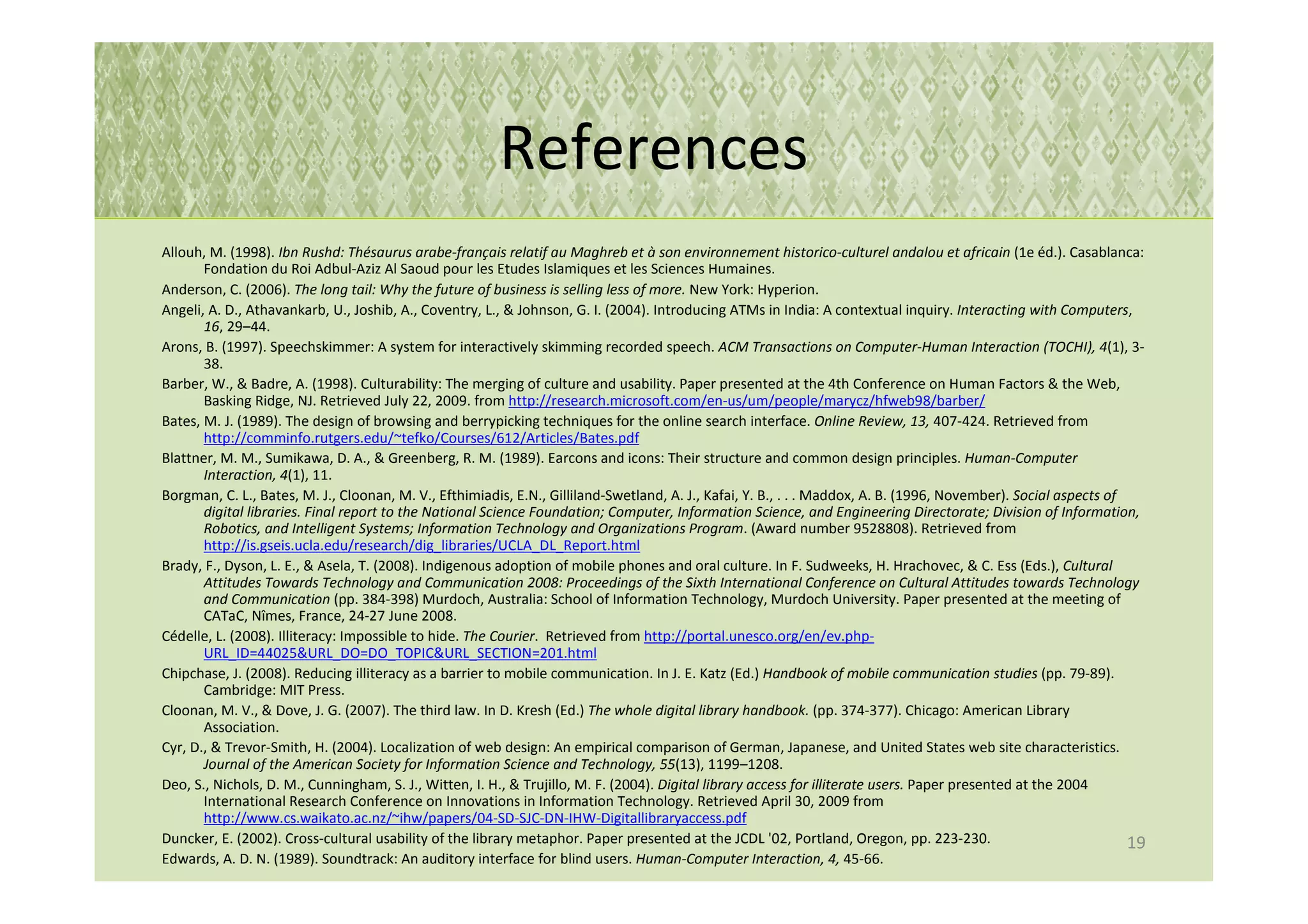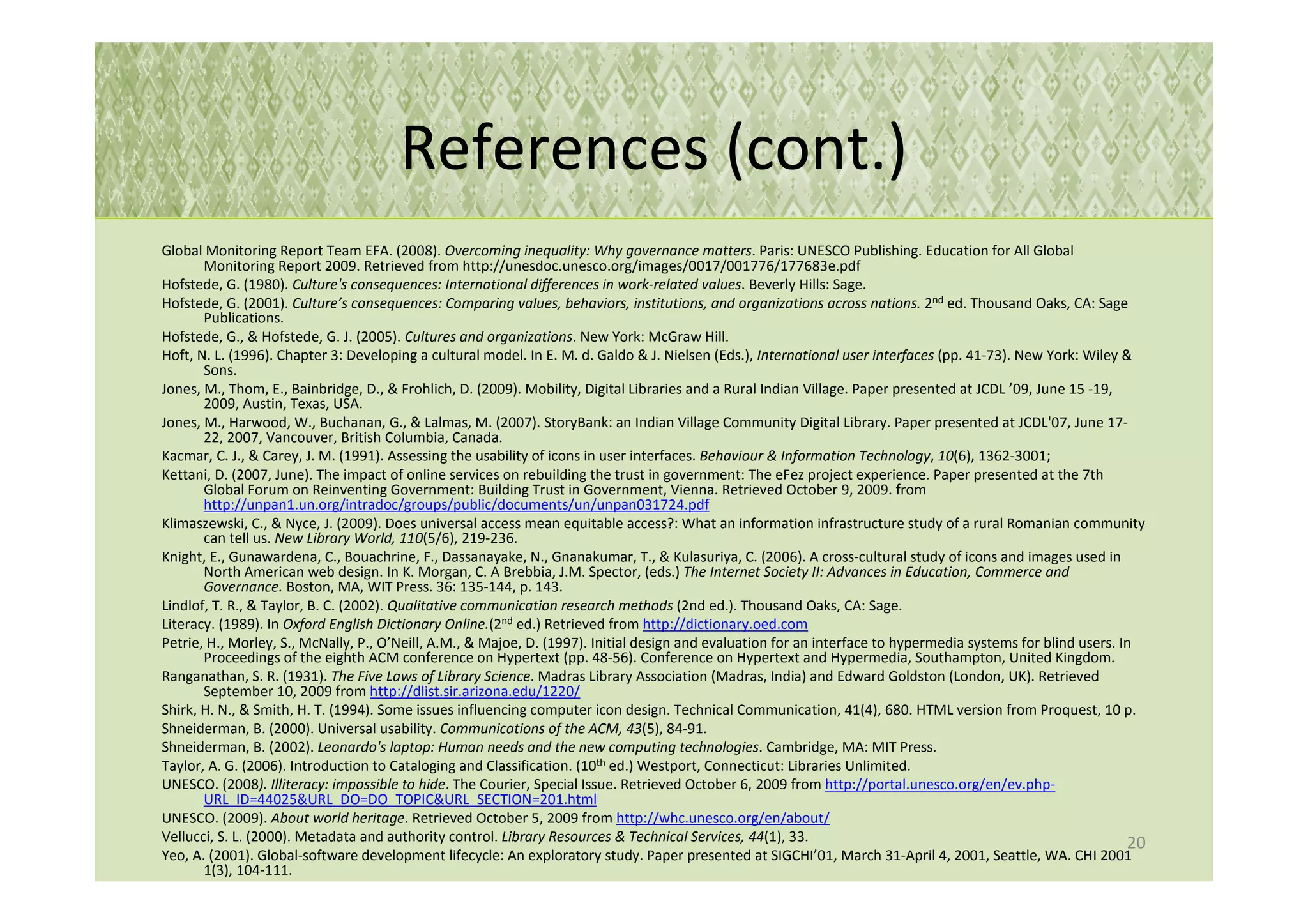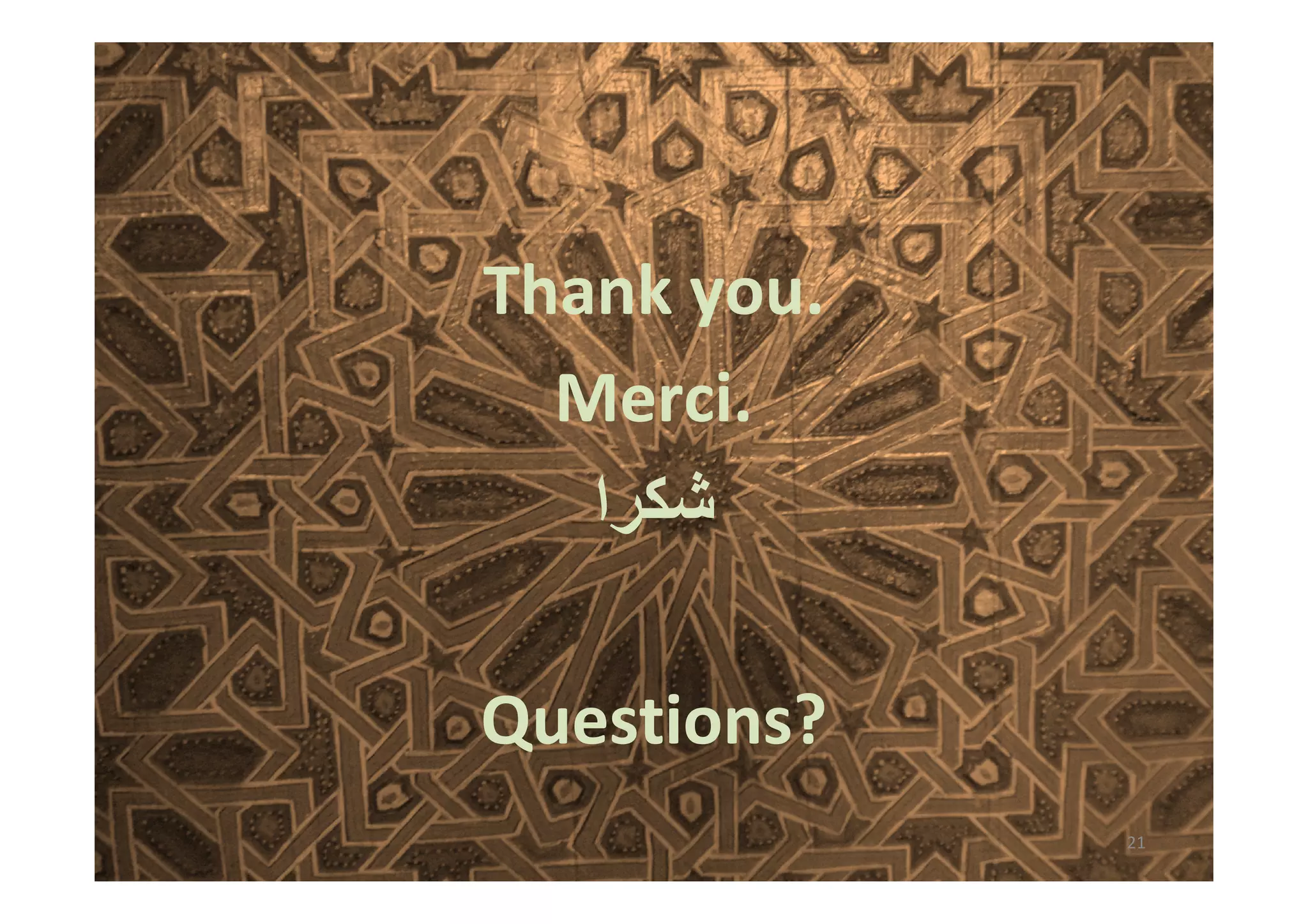This document provides background information and outlines a proposed study on developing digital libraries to provide access to cultural heritage materials for non-literate people in Morocco. It begins with an overview of the author's experience in Morocco and rationale for the study. It then reviews relevant literature on concepts of literacy, culture, cultural heritage and digital libraries. The document proposes research questions about how cultural usability and library and information science theories can inform the design of such a digital library system and interface. It concludes with an outline of the proposed ethnographic methodology for the study.
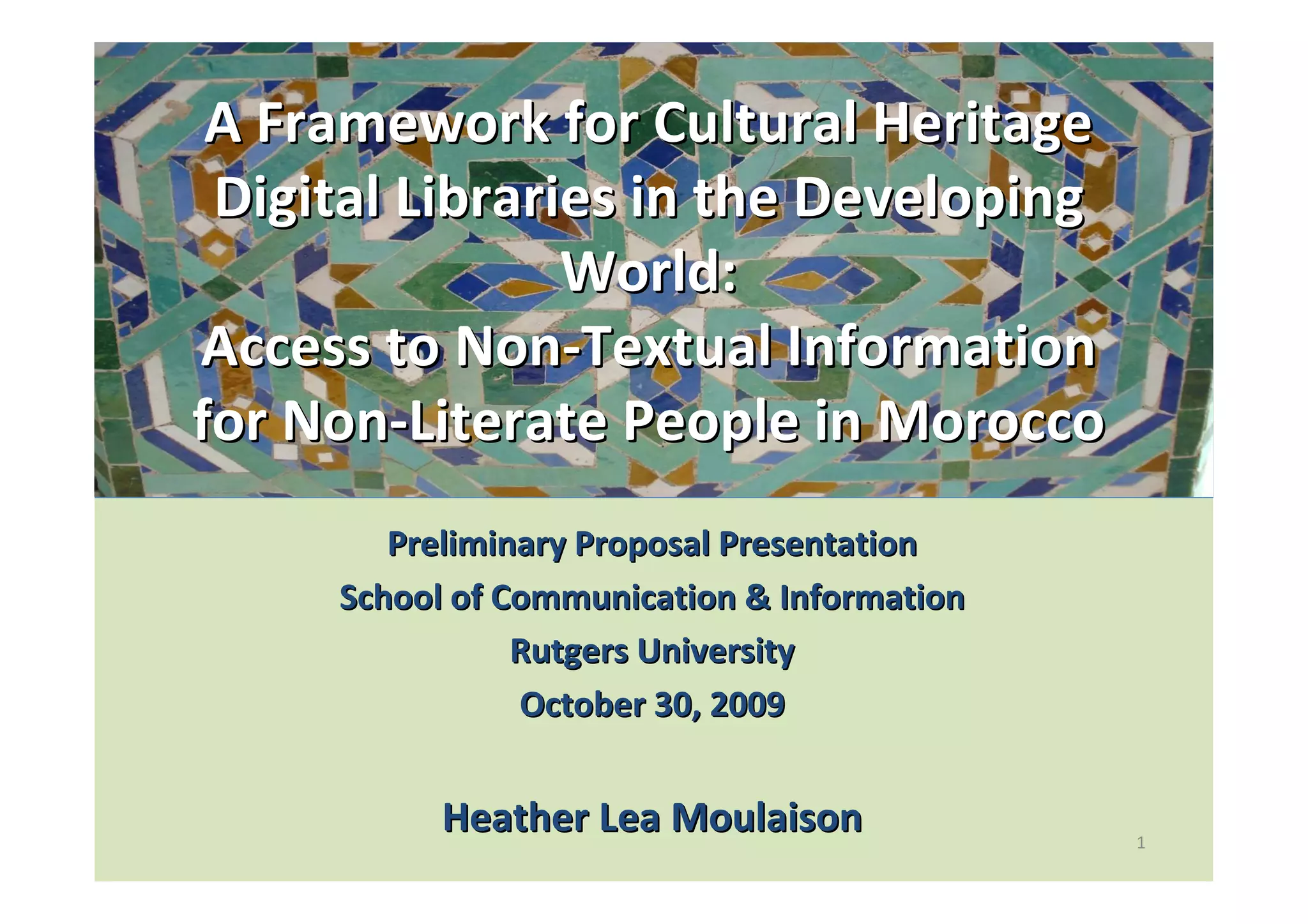
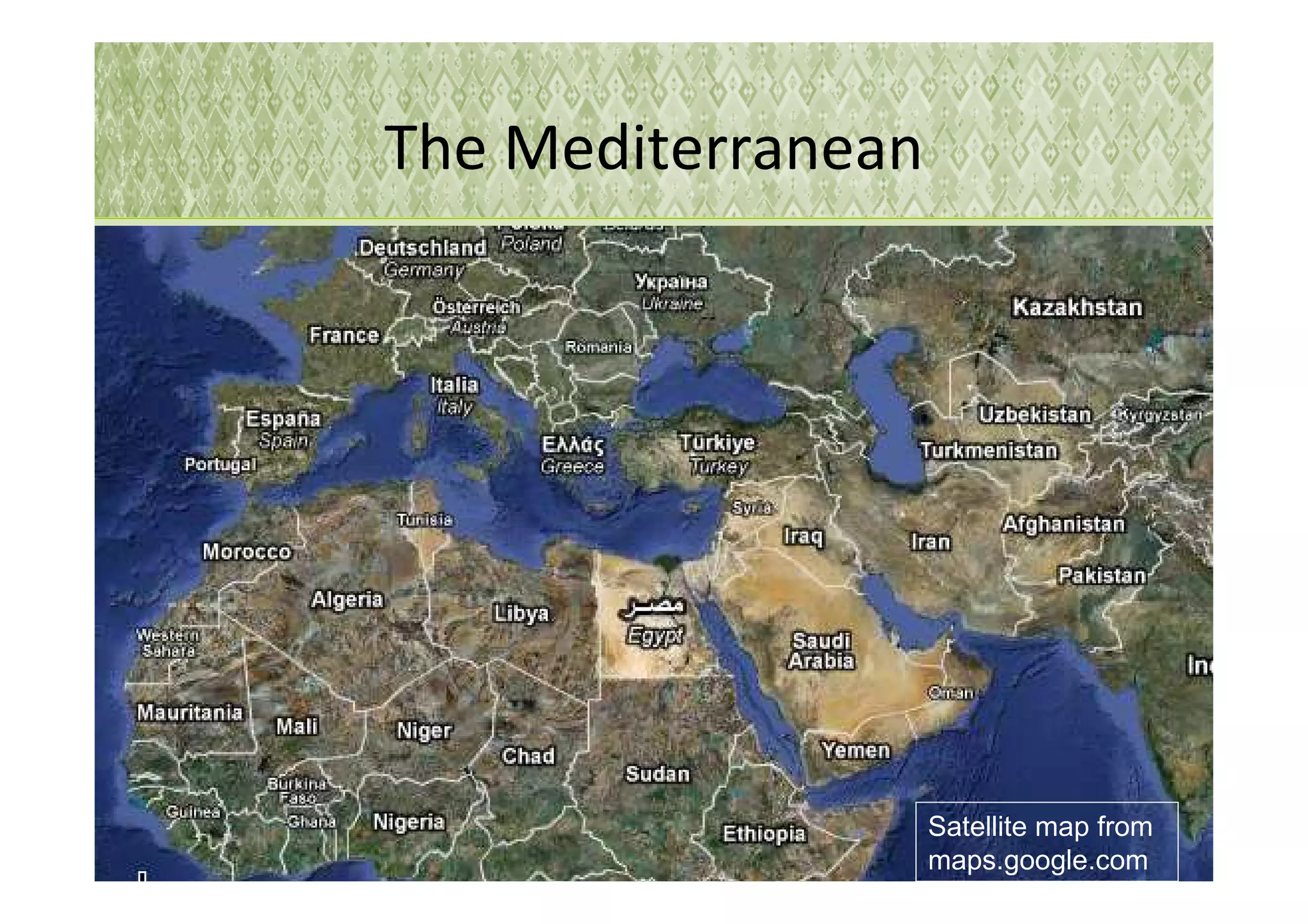
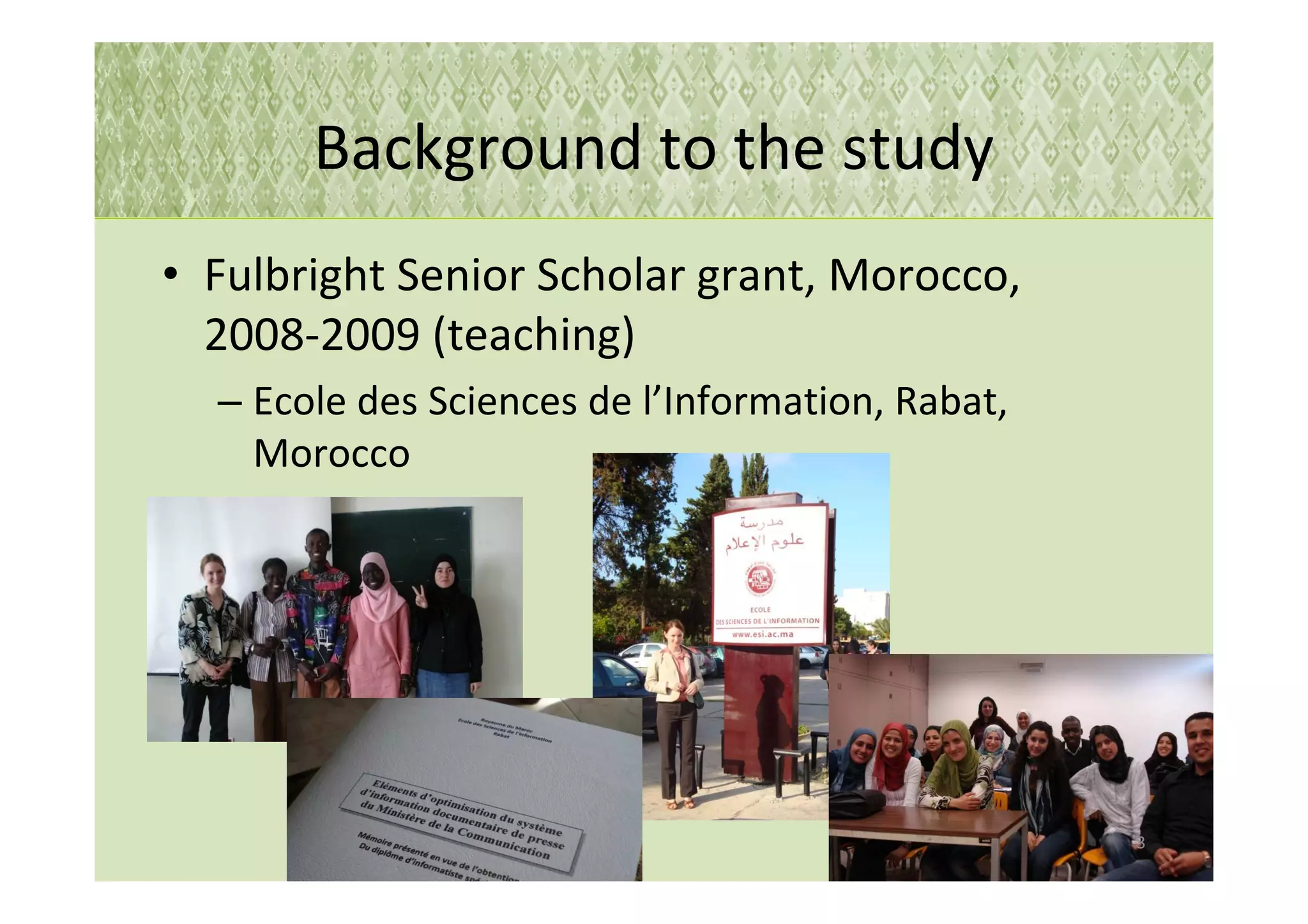
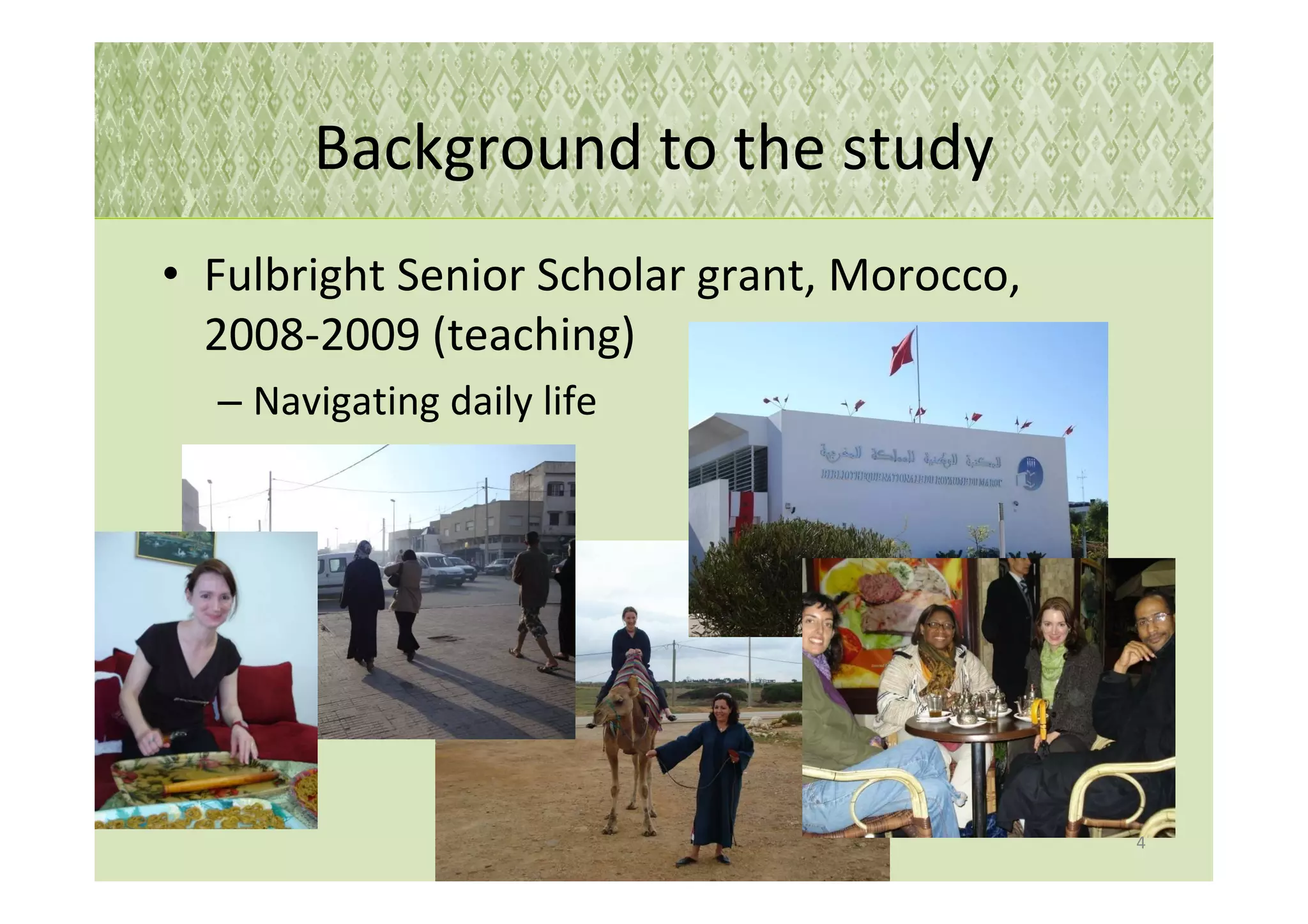
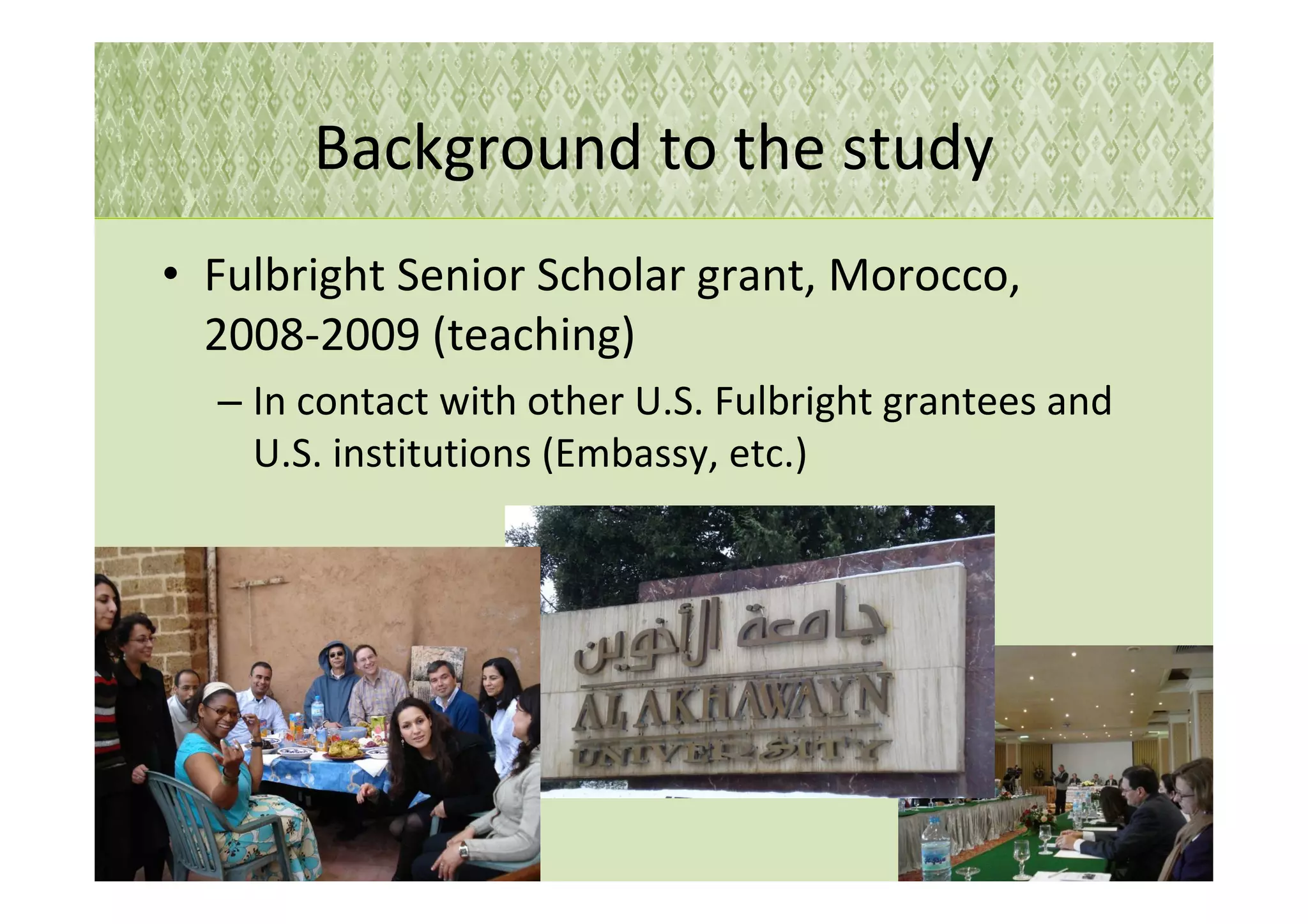
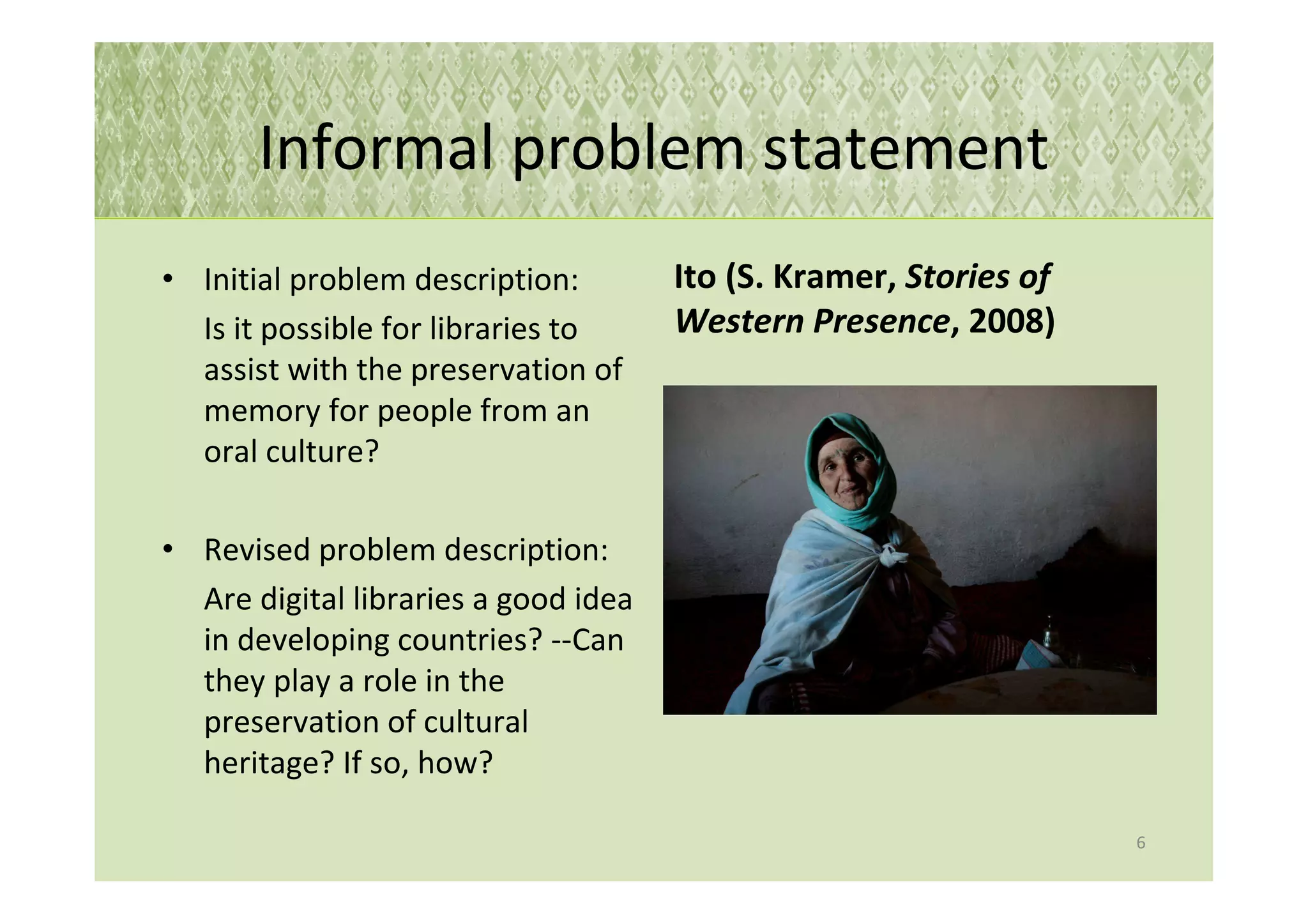
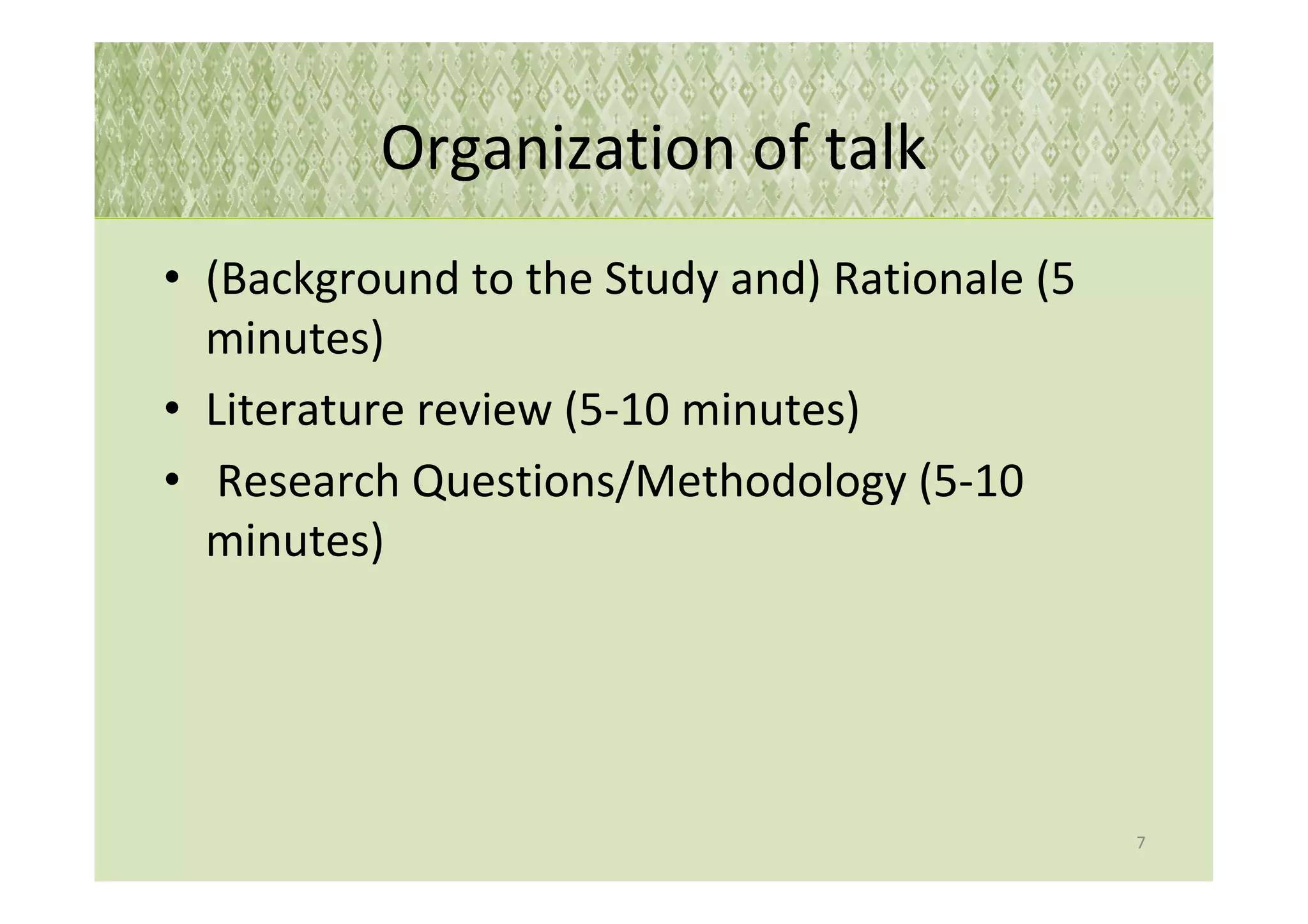
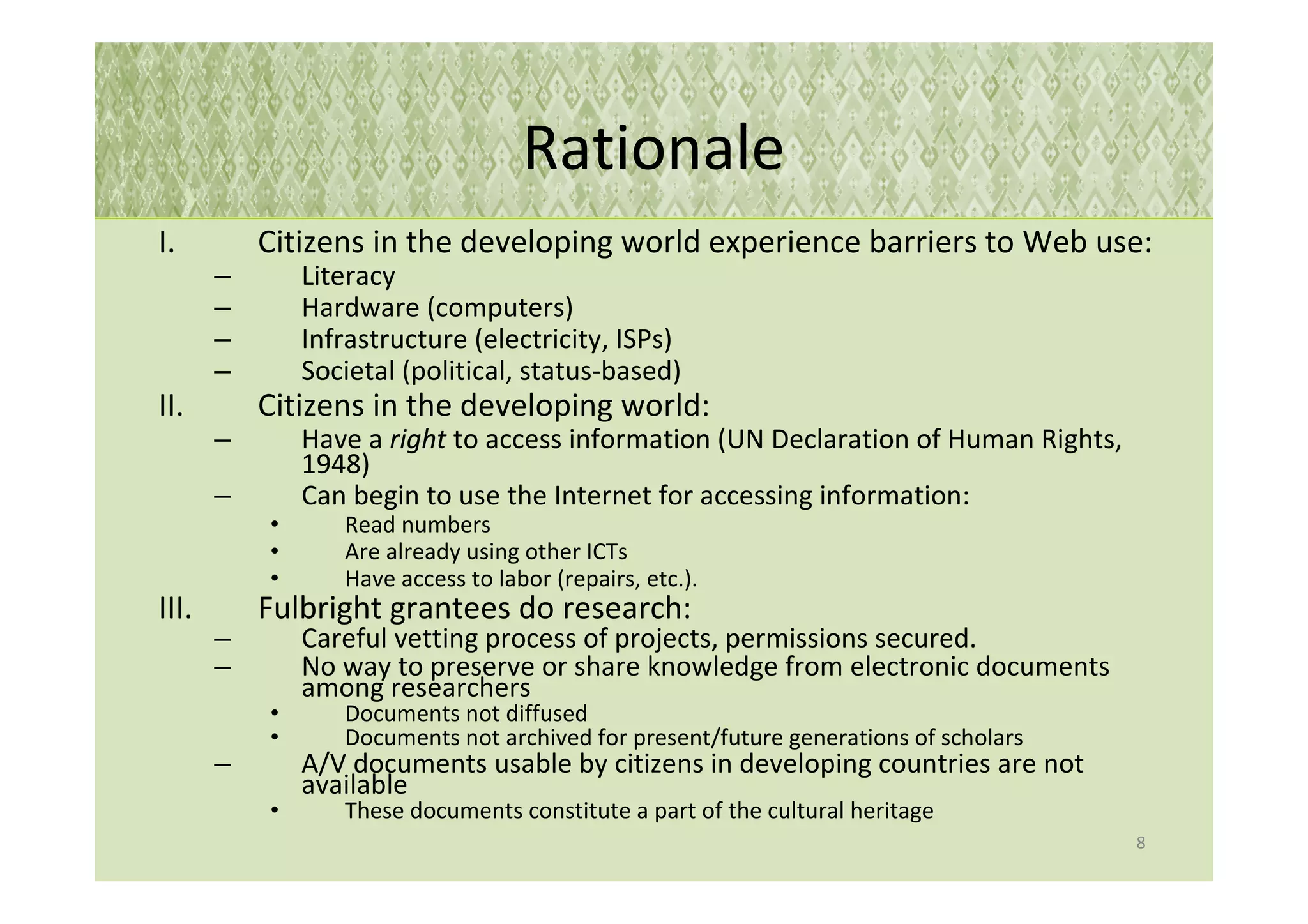
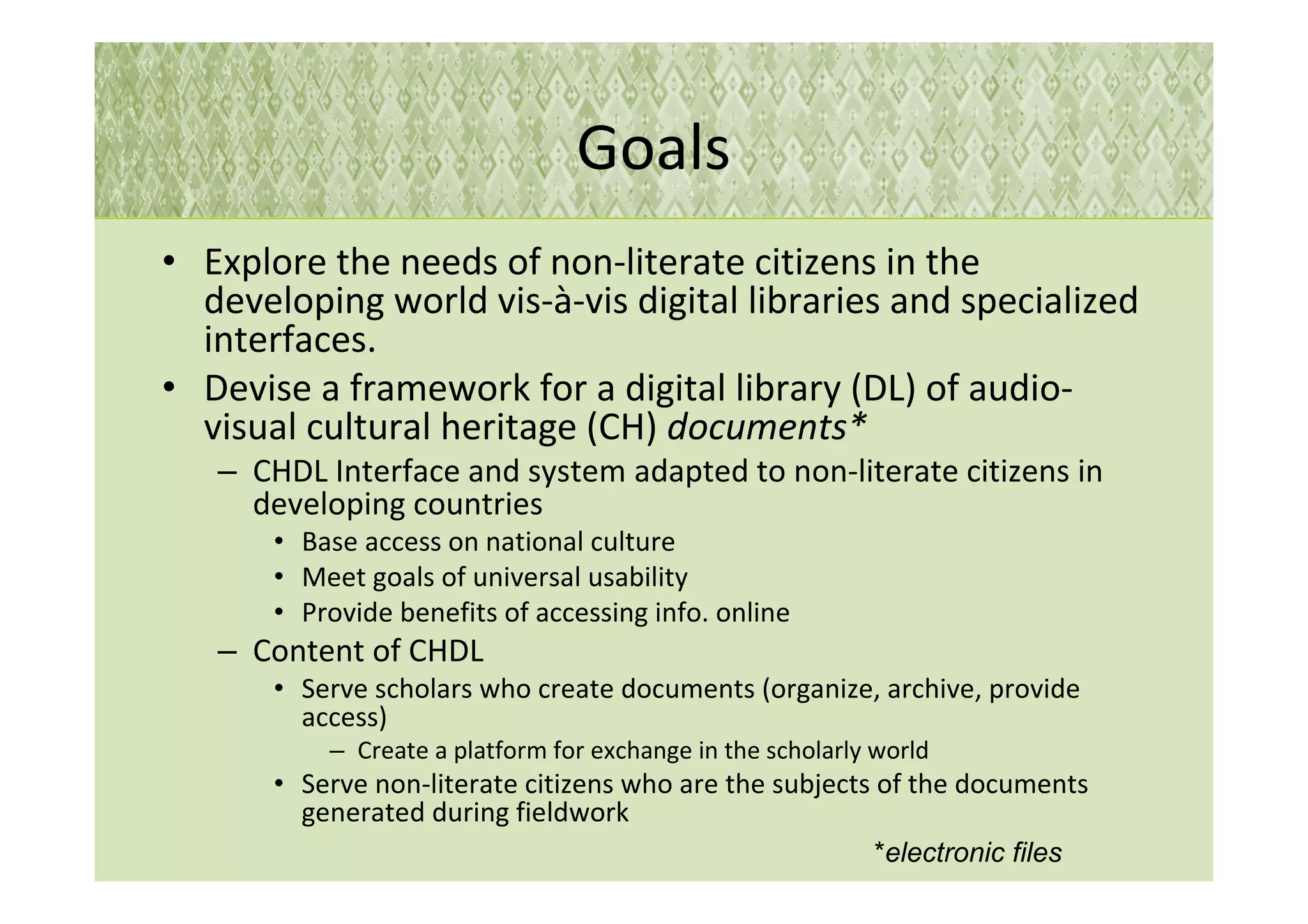
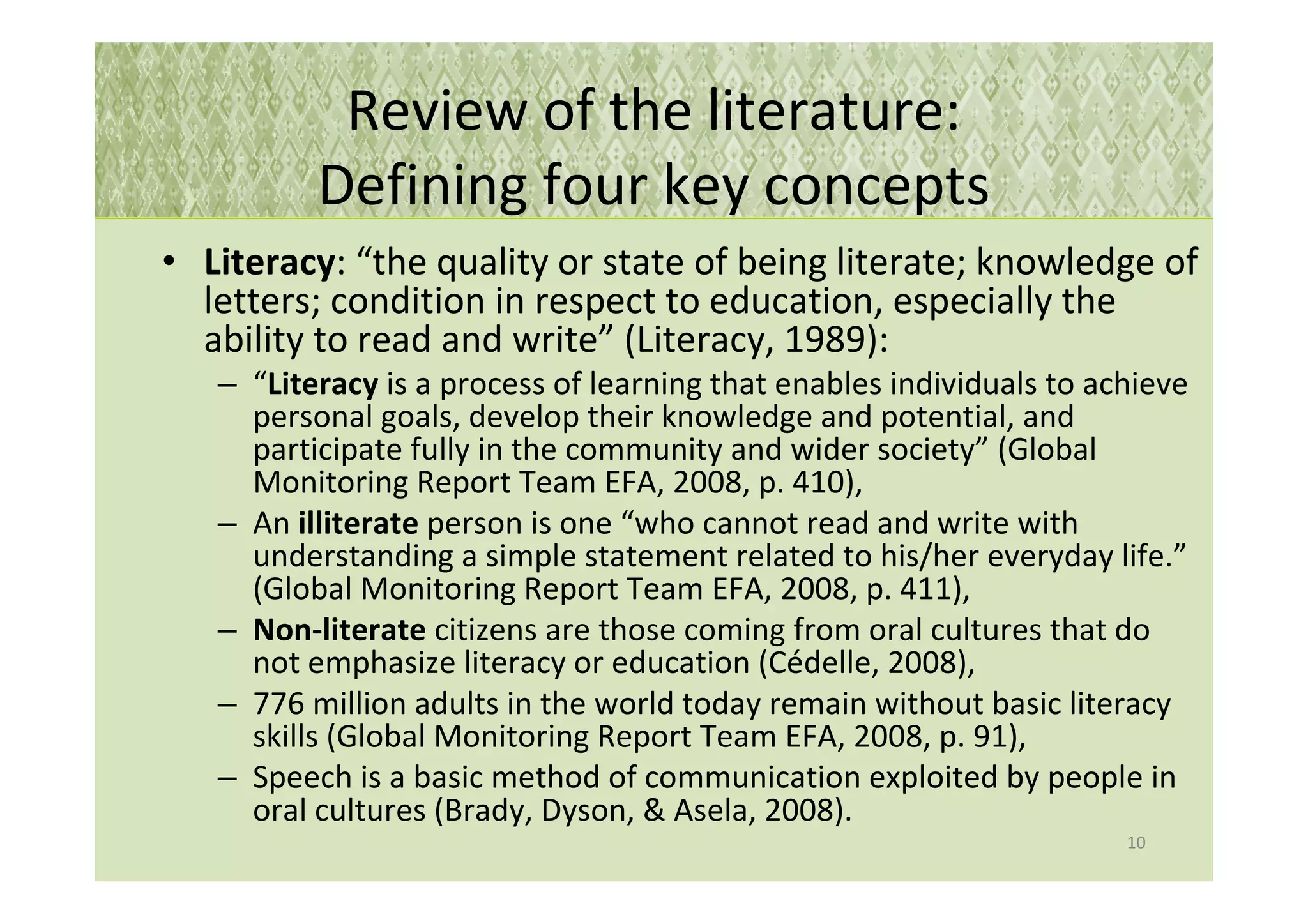
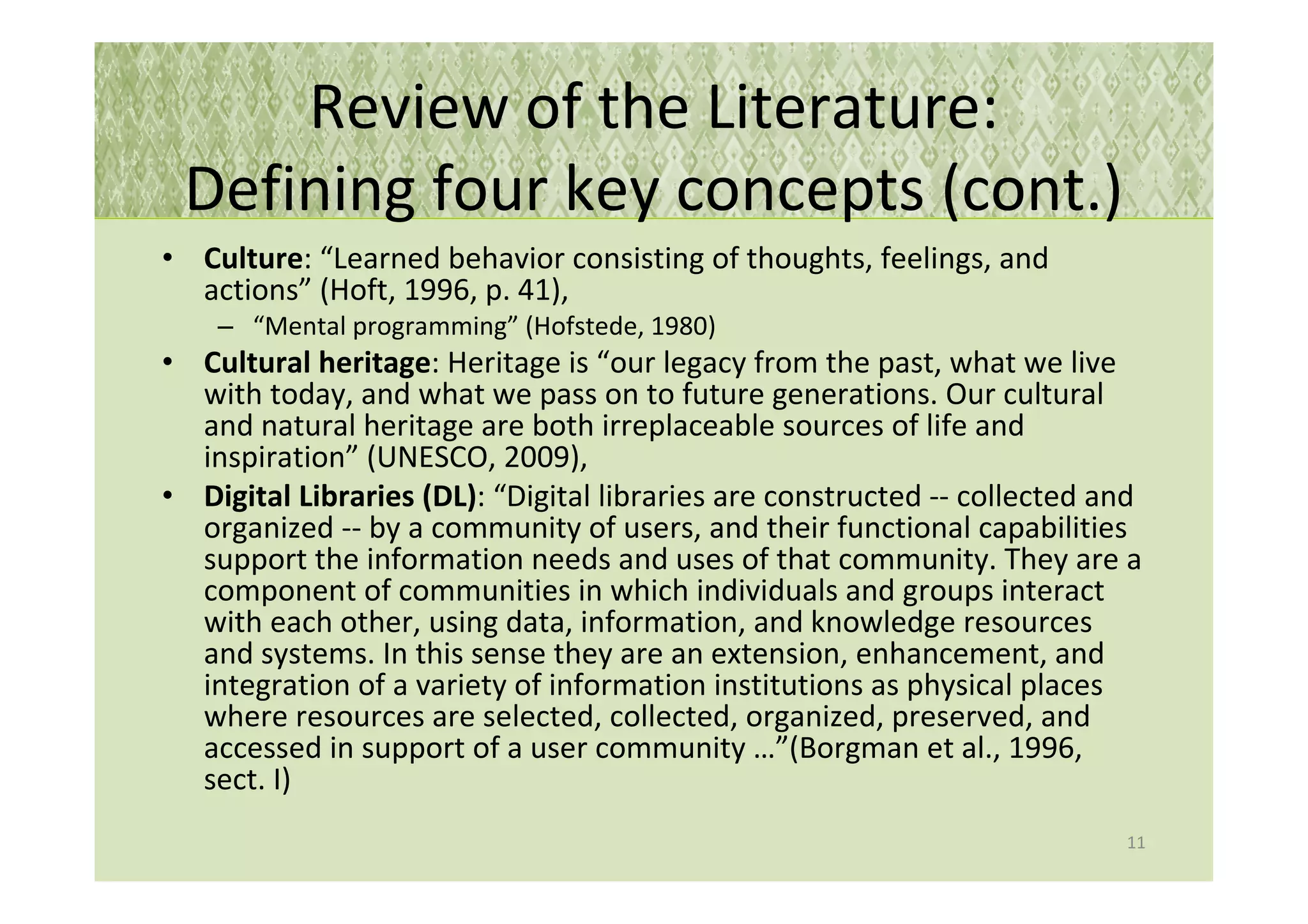
![Review of the literature:
Theories and Frameworks
Cultural usability
• National culture: Dimensions (Hofstede, 1980)
– Applications to interfaces: “cultural markers” (Barber &
Badre, 1998); Interface analysis (Marcus & Gould, 2000).
• Universal usability: “Having more than 90% of all
households as successful users of information and
communications services at least once a week"
(Shneiderman, 2000, p. 85).
– “The freedom […] to seek, receive and impart information
and ideas through any media and regardless of frontiers”
is a basic human right (United Nations, 1948/2009, Art.19),
– Localization (del Galdo, 1990) are one step,
– Four Phases of Human Activity, interaction with
information (Shneiderman, 2002)
12](https://image.slidesharecdn.com/pre-proposal-091029105645-phpapp01/75/Preliminary-Proposal-12-2048.jpg)
